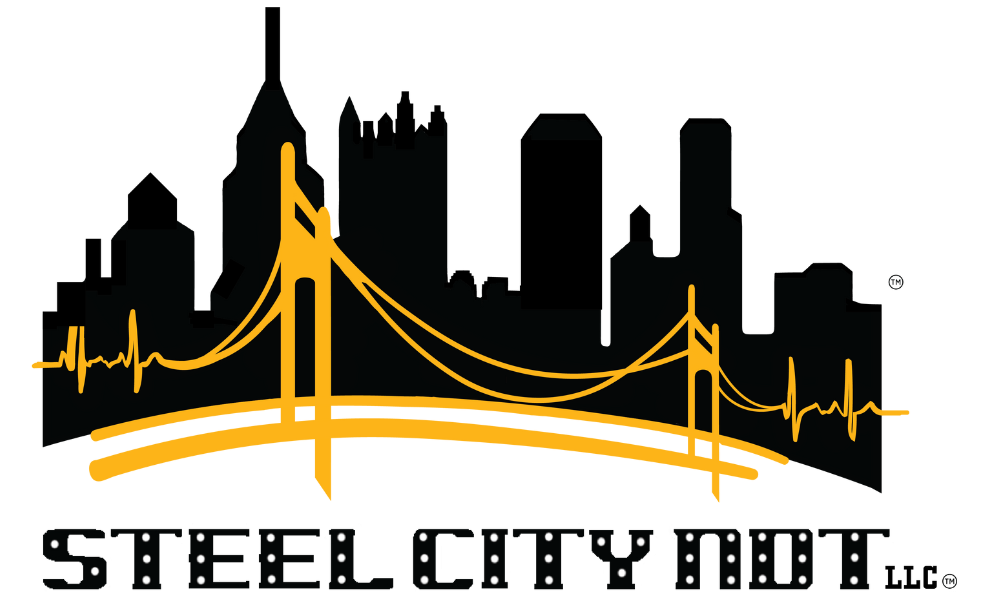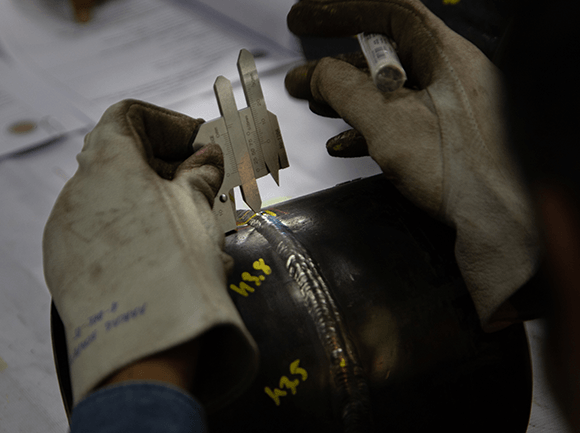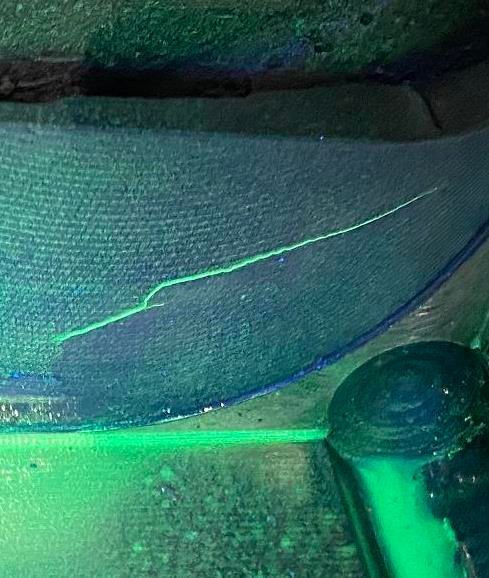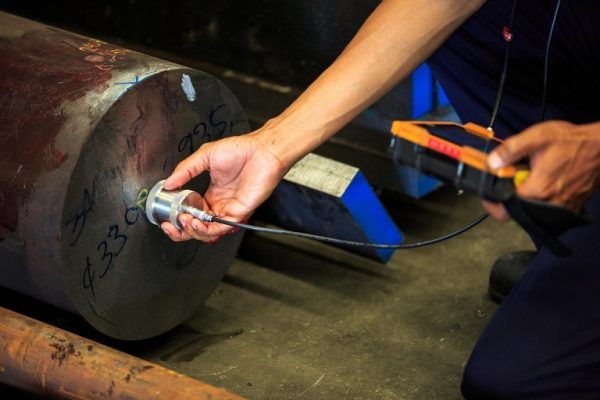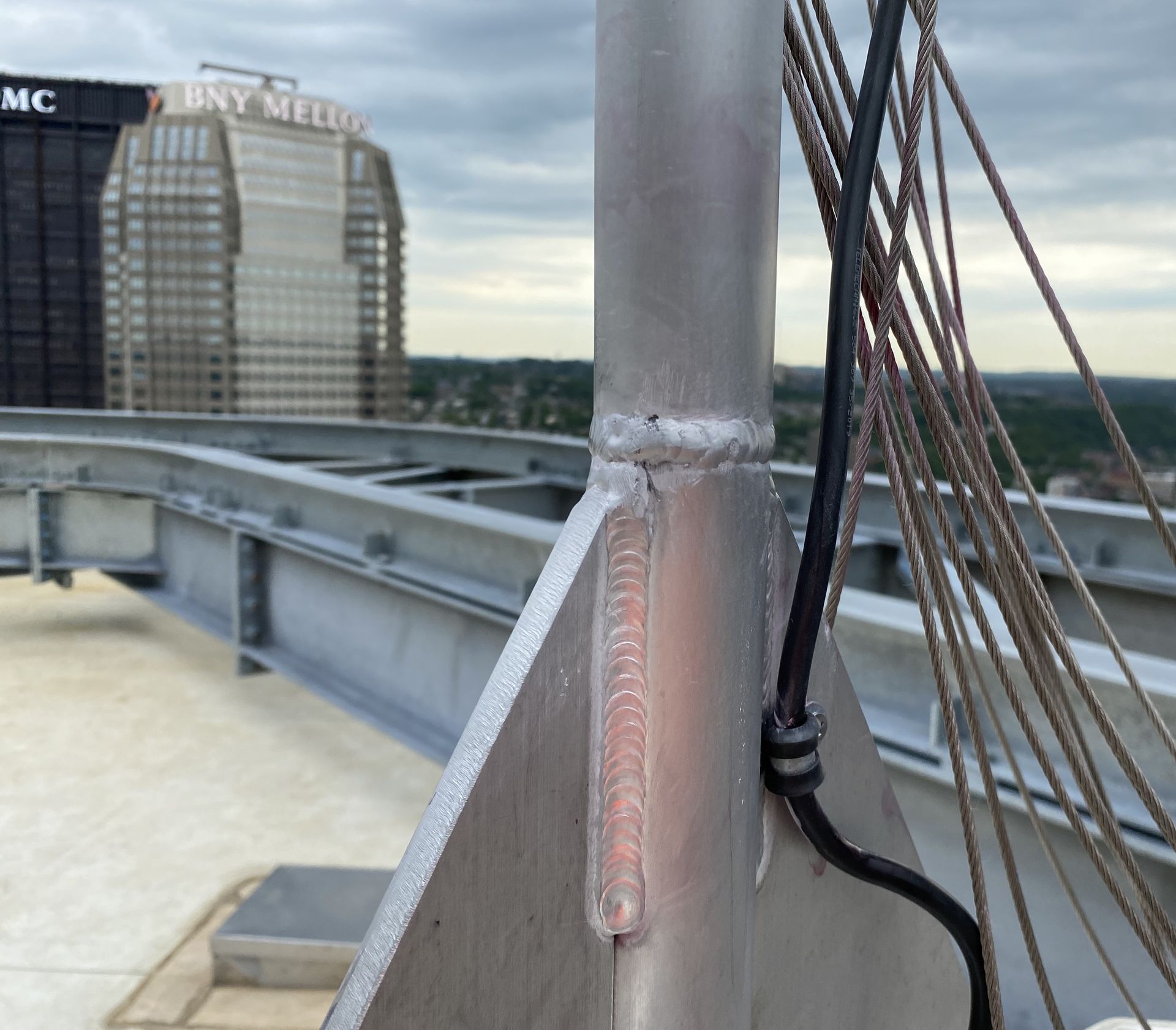NDT/NDE SERVICES
As your premier leader in Nondestructive Testing (NDT) in Pittsburgh, West Virginia, Ohio and the surrounding areas, Steel City NDT offers a wide selection of NDT solutions. Nondestructive Testing, also called Nondestructive Examination or NDE, is an efficient way to inspect your equipment and products, allowing for an increase in your operation's productivity by limiting downtime and expediting plant shutdowns. Not only do we help reduce cost, but we also help to drive your business forward. Industries we service include, but are not limited to:
- Aerospace/Aviation/Aeronautics
- Chemical
- Construction
- Infrastructure (Bridges, Buildings, Highways)
- Manufacturing
- Maritime/Marine/Underwater
- Oil & Gas (Petrochemical)
- Power Generation (Electric, Nuclear, Wind)
- Research
- Transportation (Automotive, Railroad)
What Is NDT Used For?
Nondestructive Testing has a wide range of applications in engineering and manufacturing. It can be used to determine the structural integrity of a building or structure, such as a bridge, or it can be used to detect any defects in your mechanical equipment or the products you produce.
Non-Destructive Testing Techniques
- Certified Welding Inspector (CWI)
- Magnetic Particle Testing (MT / MPI)
- Penetrant Testing (PT / LPI)
- Ultrasonic Testing (UT)
- Visual Inspection (VT)
- And More
Magnetic Particle Inspection (MPI / MT)
MPI or MT is a quick, cost-effective NDT inspection method used to detect surface and slight subsurface anomalies in ferromagnetic materials such as iron, nickel, and cobalt. With MPI, Steel City NDT technicians apply a ferromagnetic material (particles) via spray or dipping and magnetize the test object. Flaws and defects are then detected when the magnetic field is interrupted as it flows through the test object and there is a flux leakage.
These particles will indicate a discontinuity in the material by forming a cluster over it. This can be detected visually under proper white light or UV light. Steel City NDT utilizes Dry Magnetic Particle - Visible and Fluorescent or Wet Magnetic Particle (oil or water-based) - Visible and Fluorescent.
Penetrant Testing (PT / LPI)
PT is used by Steel City NDT to find surface-breaking discontinuities in non-porous, smooth surfaces or welds and is commonly used to detect casting, welding, and forging defects such as leaks and cracks. This testing works based on capillary action, where liquid rises when confined to a smaller opening (such as a crack). Once our technician removes the excess penetrant and applies the developer, our certified inspector will identify any remaining penetrant to indicate a flaw. At Steel City NDT, we offer Dye Penetrant Inspection (DPI) and Fluorescent Penetrant Inspection.
Ultrasonic Testing (UT)
UT is a technique utilized by Steel City NDT to measure the propagation of mechanical vibrations or ultrasonic waves through the material to examine its properties, measure thickness, and detect discontinuities such as cracks, corrosion, flaws, and more.
Our experienced technicians use ultrasonic testing to detect defects on the surface and subsurface while providing you with accurate readings when it comes to the discontinuity shape and size. Steel City NDT utilizes Ultrasonic Thickness Testing (UTT), Shear Wave Ultrasonic Testing (SWUT), B-Scan, C-Scan, S-Scan, Pulse-Echo, and through-transmission testing methods.
Visual Inspection (VT)
VT is a very reliable form of NDT and can be performed to various specifications, standards, and codes. Steel City NDT technicians perform this testing using sight to determine any visual anomalies of the object. We are able to perform inspections in accordance with the American Petroleum Institute (API), American National Standard Institute (ANSI), American Society of Nondestructive Testing (ANST), American Welding Society (AWS), among many others.
Certified Welding Inspector (CWI)
CWI is a type of visual inspection where the weld is observed with the naked eye or by using a magnification device to detect any anomalies within welds and base metal. Our technicians can determine if the weld meets all the requirements of the welding procedure specification (WPS). With CWI inspections, our technicians can also detect any problems with the weld early on so it can be repaired before it can become a more expensive or difficult issue to repair. Our highly trained technicians check for defects such as incomplete fusion, slag inclusion, and spatter. In addition to this, our CWIs are trained to certify welders to any code or standard, as well as any position. This includes performing on-site observations of your welders, performing bend tests, and anything else required.

